Farkaslaka or Lupeni in Romanian, is a small village in Hargita (Harghita) county. According to data from 2011 (yeah, we're in the stone age still), the village has 1850 inhabitants and nothing special, if you don't count Áron Tamási's memorial grave.
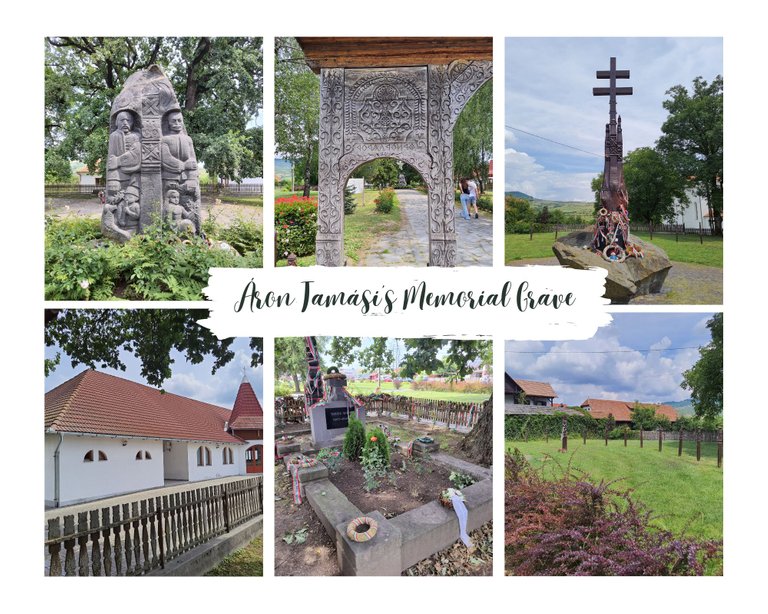
Áron Tamási (born: János Tamás; 20 September 1897 – 26 May 1966) was a Hungarian writer. He became well known in his native region of Transylvania and in Hungary for his stories written in his original Székely style. source
At the time of our visit, there were only a handful of people visiting the place, but that's not always the case. Locals knew how to make the most of the situation.
Farkaslaka or Lupeni is next to Korond (Corund), where those lovely ceramics are sold. That's place that is always visited by tour busses from abroad as well as tourists love to buy souvenirs and the pottery they make is famous not only in Romania but abroad as well. If you don't know what I'm talking about, you can check one of my previous posts.
When putting together a rout for the tourist, these two places are usually considered and when busses stop here one after another, there's an opportunity.
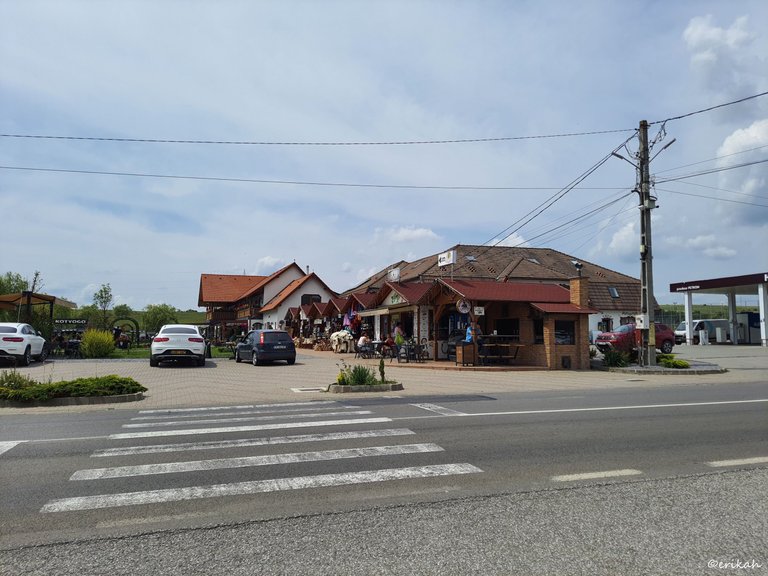
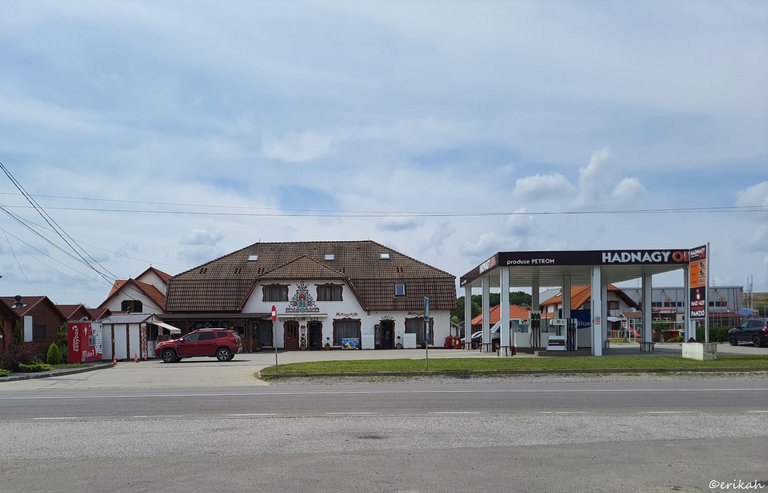
Across the street, there's an inn, a restaurant, souvenir shop and a petrol station. This is a huge opportunity for locals.
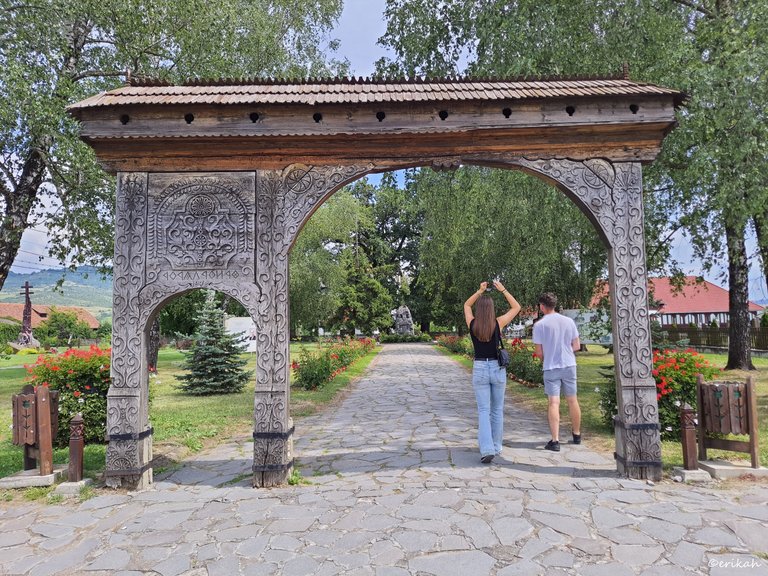
But let's get back to Áron Tamási's memorial grave. There's a nice, carved wooden gate you have to cross. This is specific to the region and I think it can't be missing.
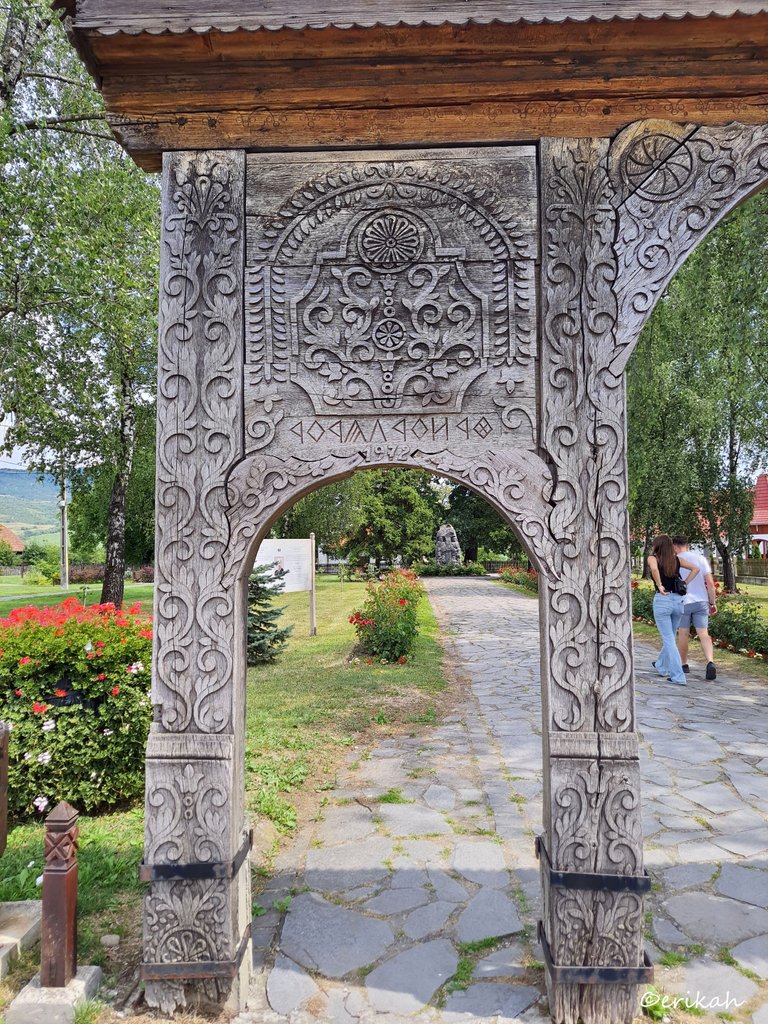
Unfortunately I have no idea what the writing means as it's the old Székely runic writing and I can't read it.
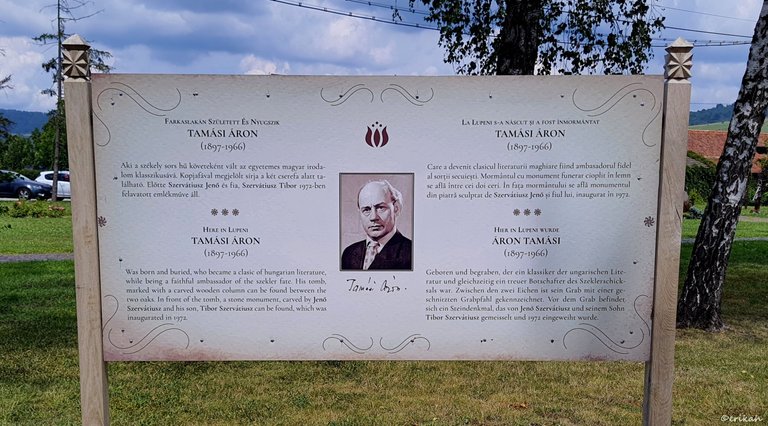
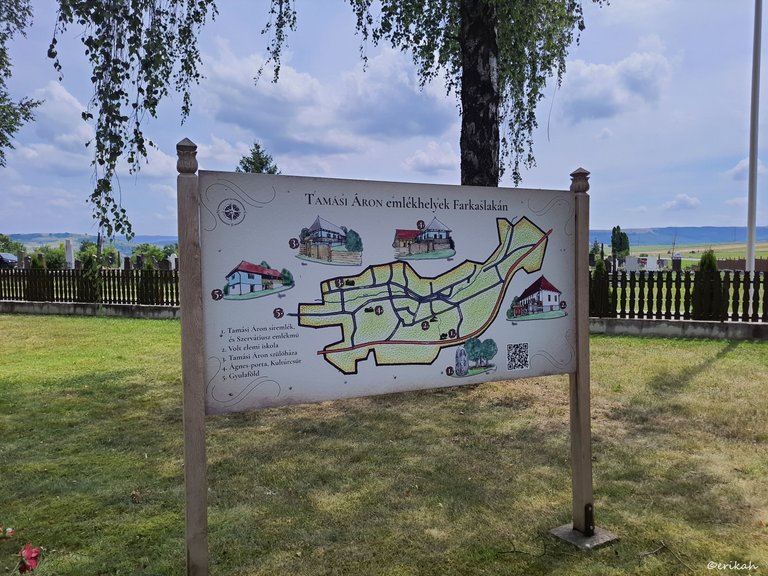
Turns out, there's the old elementary school to see, as well as Áron Tamási's house, where he was born and another house.
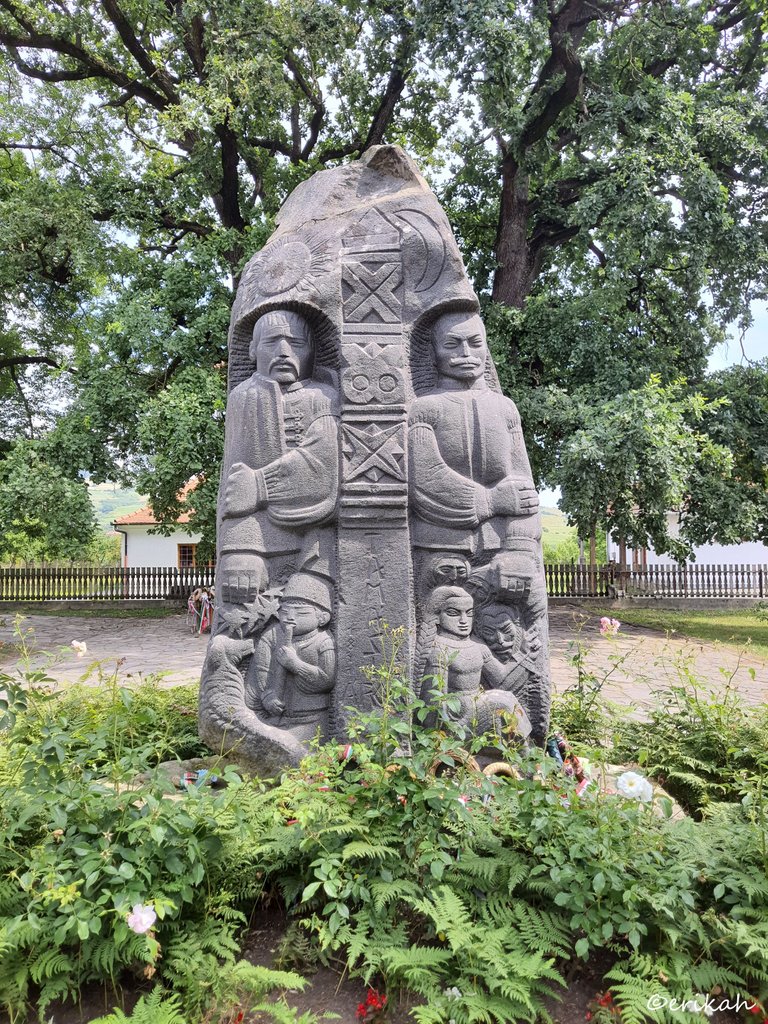
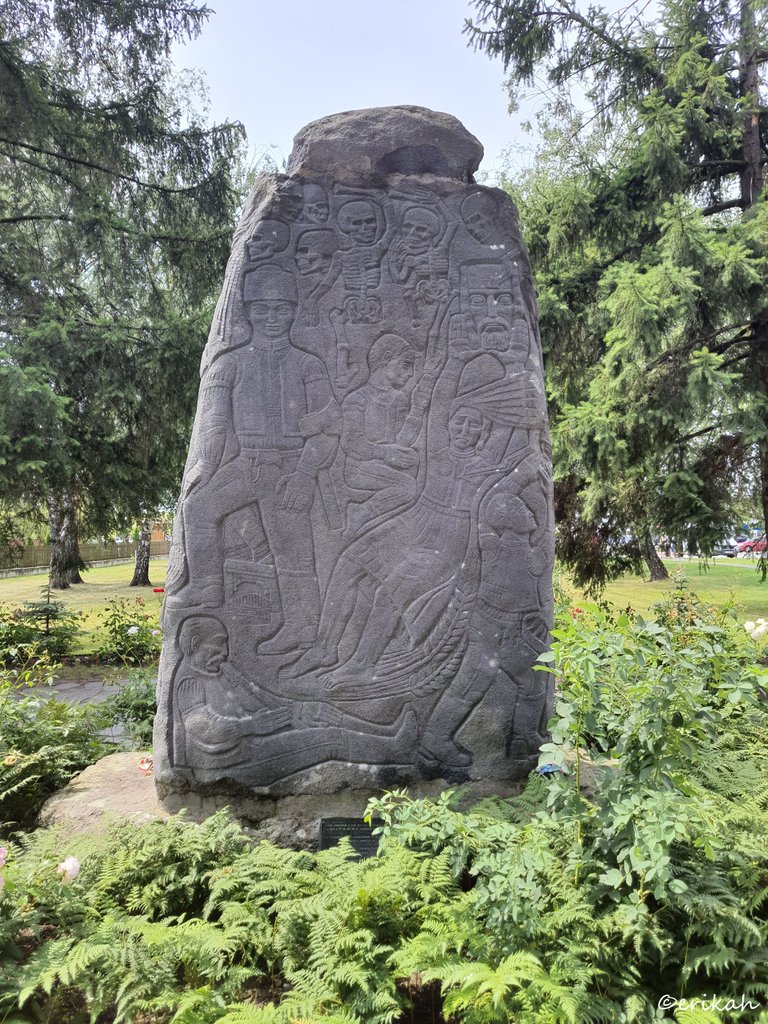
This is a memorial stone made by father and son, Jenő Szervátiusz and Tibor Szervátiusz, inaugurated in 1972. It's interesting to see the well known elements of the region. The middle part symbolizes the kopjafa, which is a carved wooden pole used instead of headstones. On the bottom left, a small kid with a dog, playing the flute, which was a common scene when the writer was a kid. Back in those days that's what kids did. The man on the left is wearing the traditional shirt with the Hungarian knot. The sun and the moon are also commonly used in fold art.
The back of the stone is a bit of a puzzle, but I suppose it symbolizes the struggle and the fight the the Szeklers had to go through over the centuries.
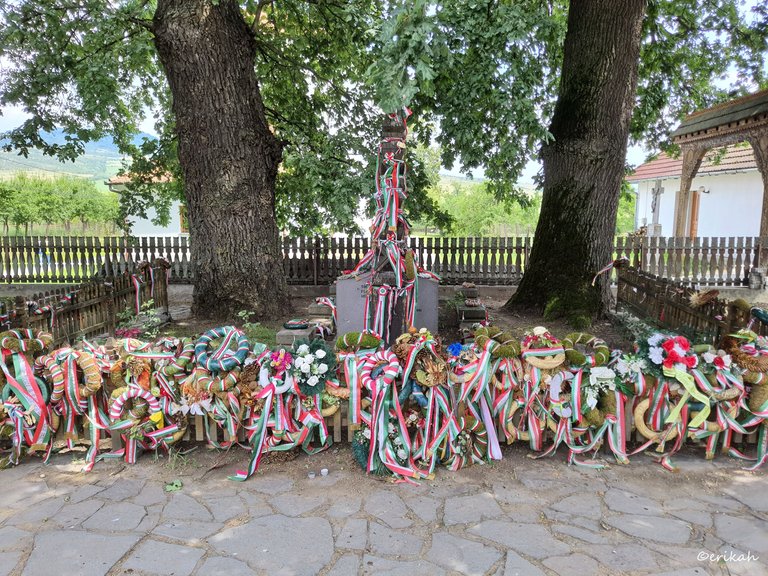
There were wreaths everywhere, brought by those who came to visit the grave.
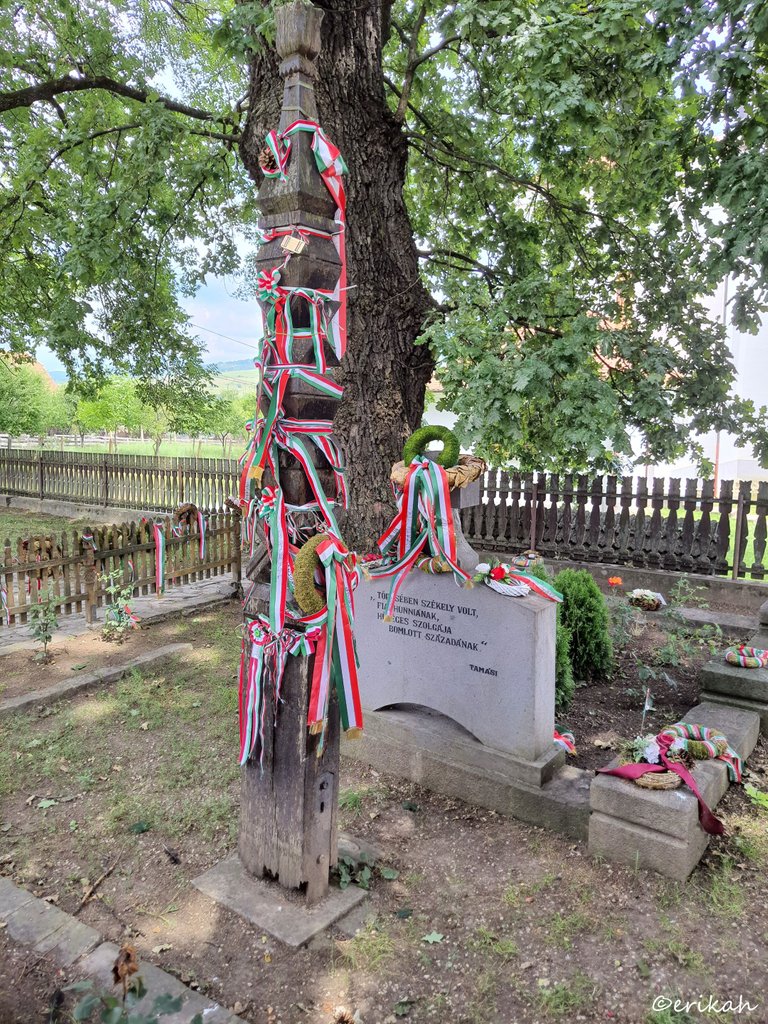
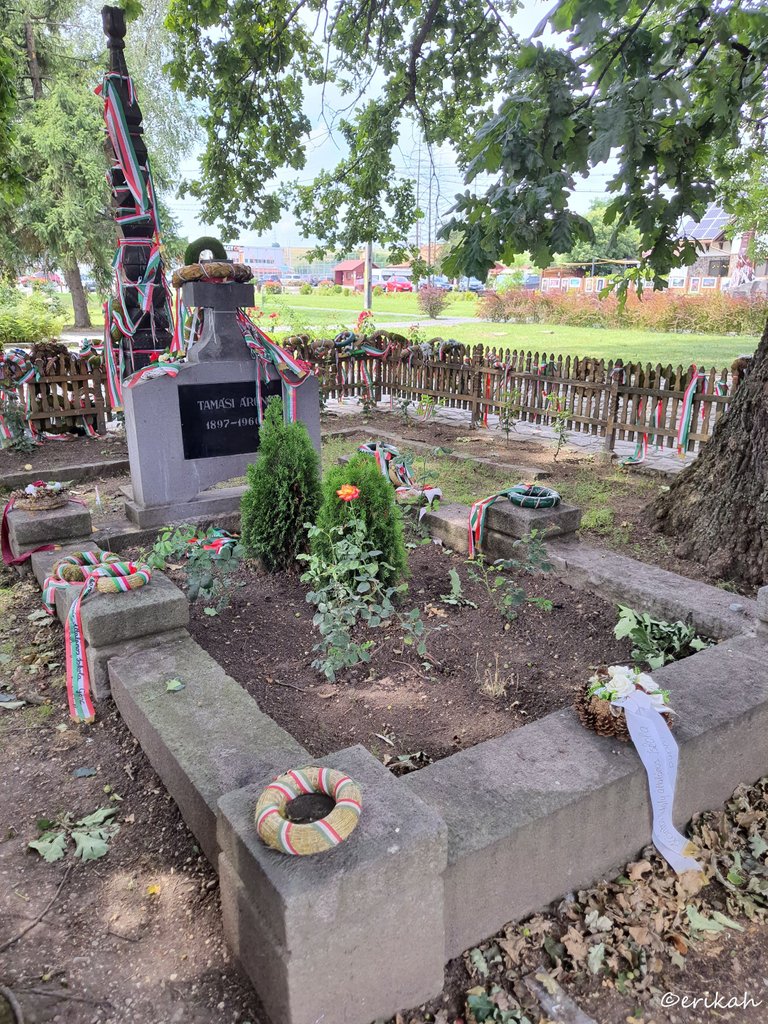
This is the kopjafa, the carved wooden pole used instead of a headstone. It's very common in that area. However, Áron Tamási has a headstone as well.
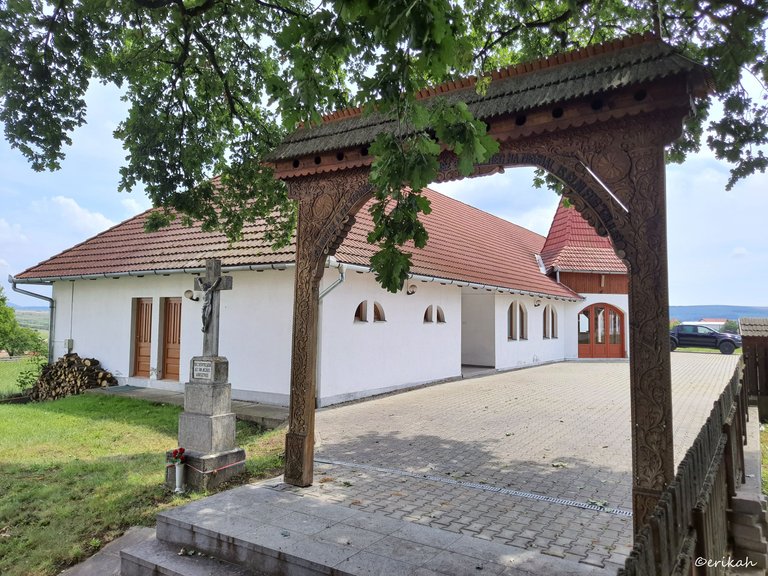
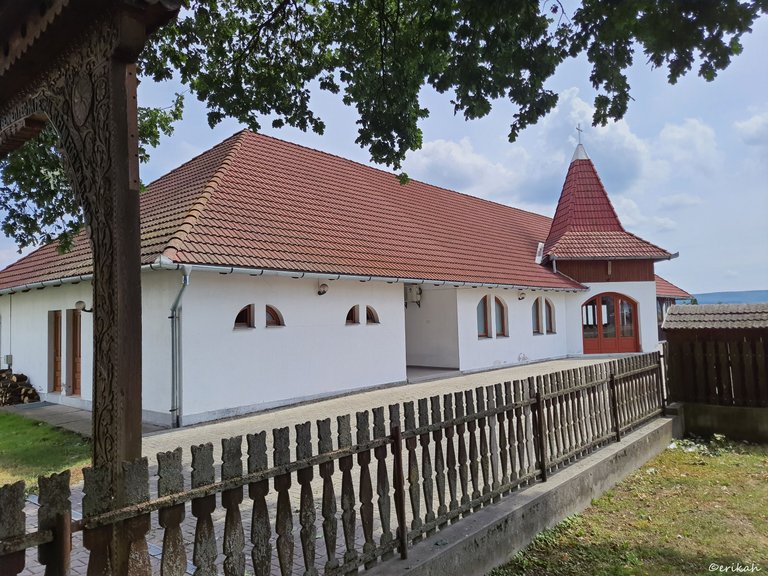
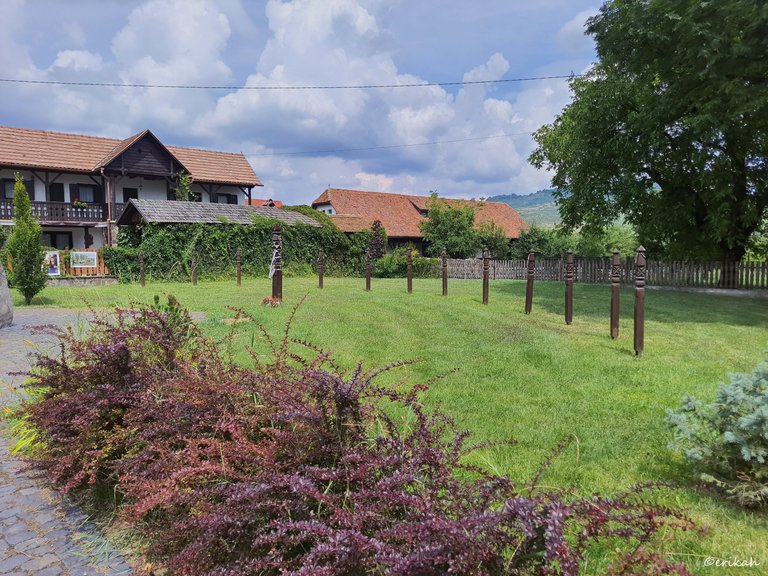
More Kopjafa, to commemorate the 13 martyrs of Arad.
The martyrs of Arad are the thirteen Hungarian army officers (12 generals and 1 colonel) who were executed in Arad after the suppression of the 1848-49 revolution and war of independence due to their role in it. Although the number of these army officers is sixteen, the national memory still primarily refers to the thirteen army officers executed on October 6, 1849 as such, often using the names thirteen martyrs of Arad and thirteen of Arad. source
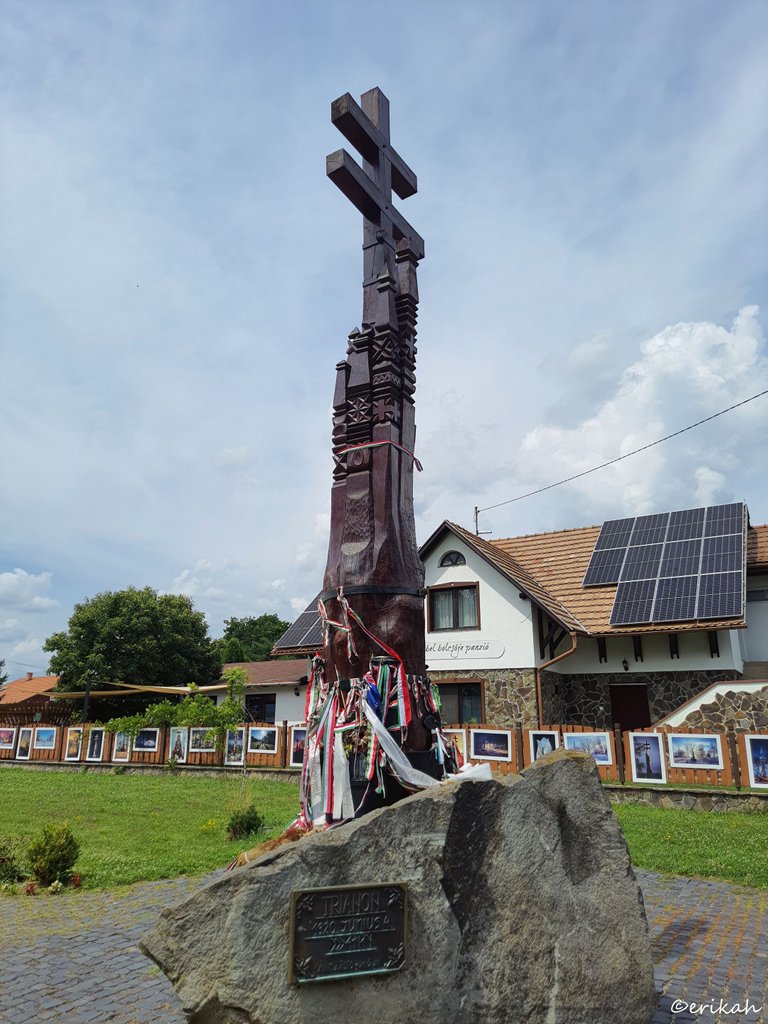
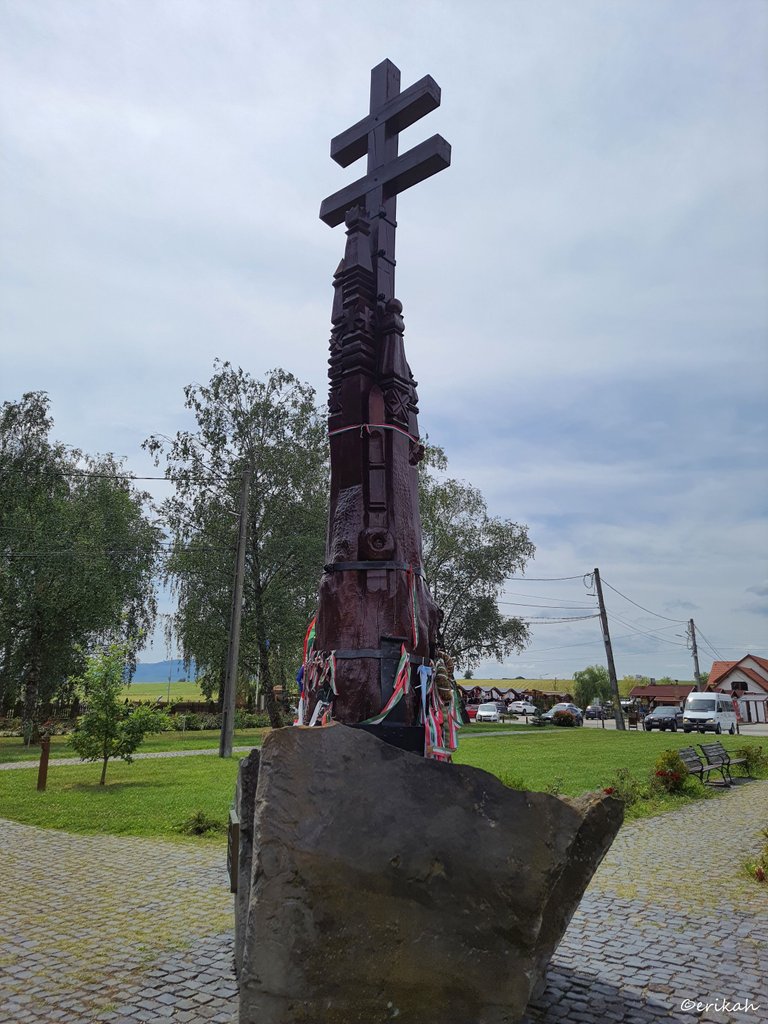
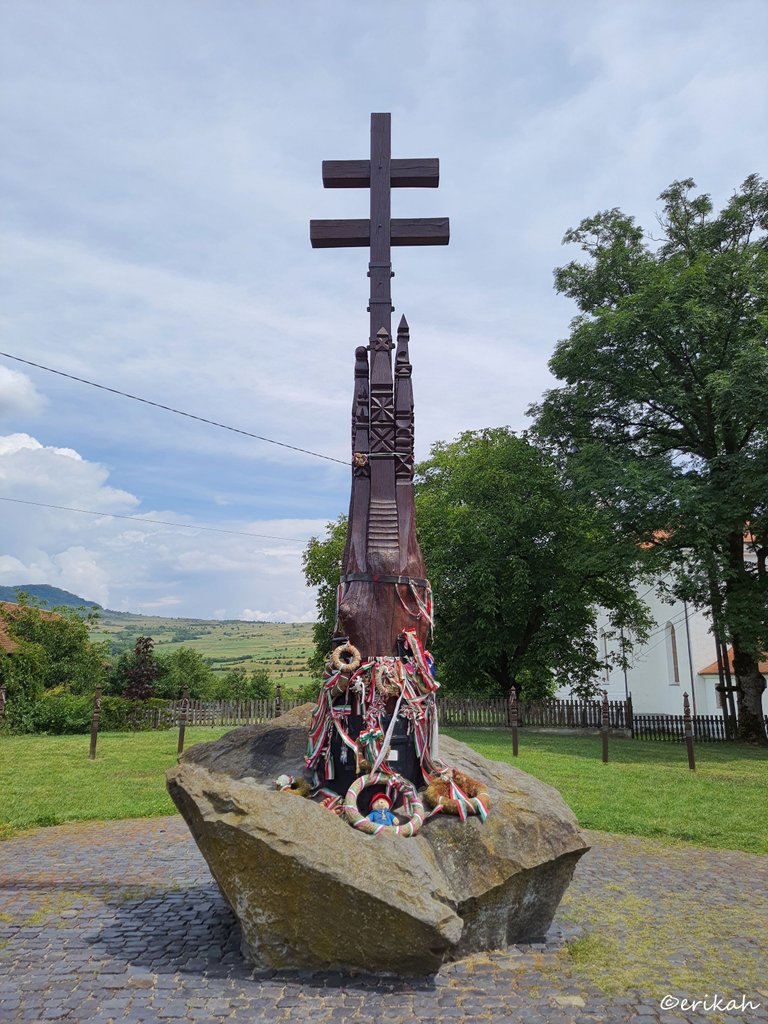
And this is the Trianon monument, inaugurated in 2010.
The Treaty of Trianon (French: Traité de Trianon; Hungarian: Trianoni békeszerződés; Italian: Trattato del Trianon; Romanian: Tratatul de la Trianon) often referred to as the Peace Dictate of Trianon or Dictate of Trianon in Hungary, was prepared at the Paris Peace Conference and was signed in the Grand Trianon château in Versailles on 4 June 1920. It formally ended World War I between most of the Allies of World War I and the Kingdom of Hungary. source
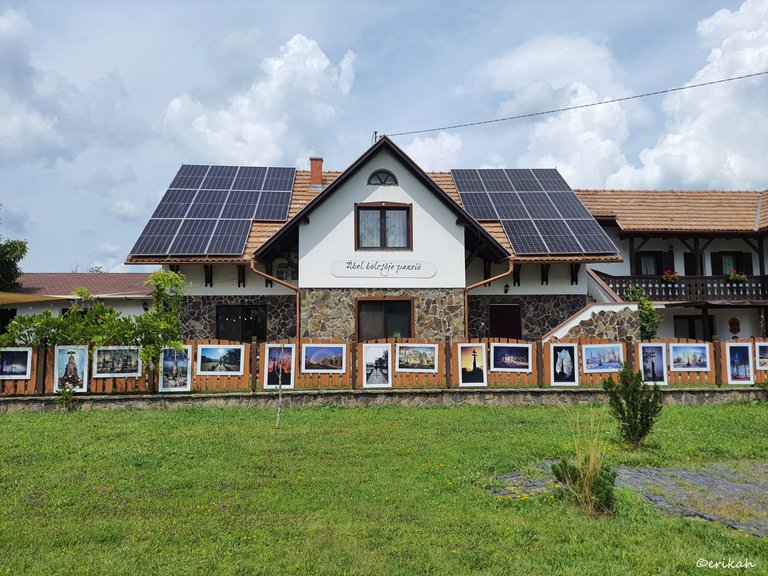
Next door there was an inn, called Abel's cradle. Abel is a character of Áron Tamás, trilogy by the way and I suppose the name came from there.
As you can see, there was an open air photo exhibition as well, photos were hanging on the fence, but there was no time for a proper photo shoot.

If you're a newbie, you may want to check out these guides:
- Communities Explained - Newbie Guide
- Cross Posting And Reposting Explained, Using PeakD
- Hive Is Not For Me
- How To Pump Your Reputation Fast - Newbie Guide
- Tips And Tricks & Useful Hive Tools For Newbies
- More Useful Tools On Hive - Newbie Guide
- Community List And Why It Is Important To Post In The Right Community
- Witnesses And Proposals Explained - Newbie Guide
- To Stake, Or Not To Stake - Newbie Guide
- Tags And Tagging - Newbie Guide
- Newbie Expectations And Reality

